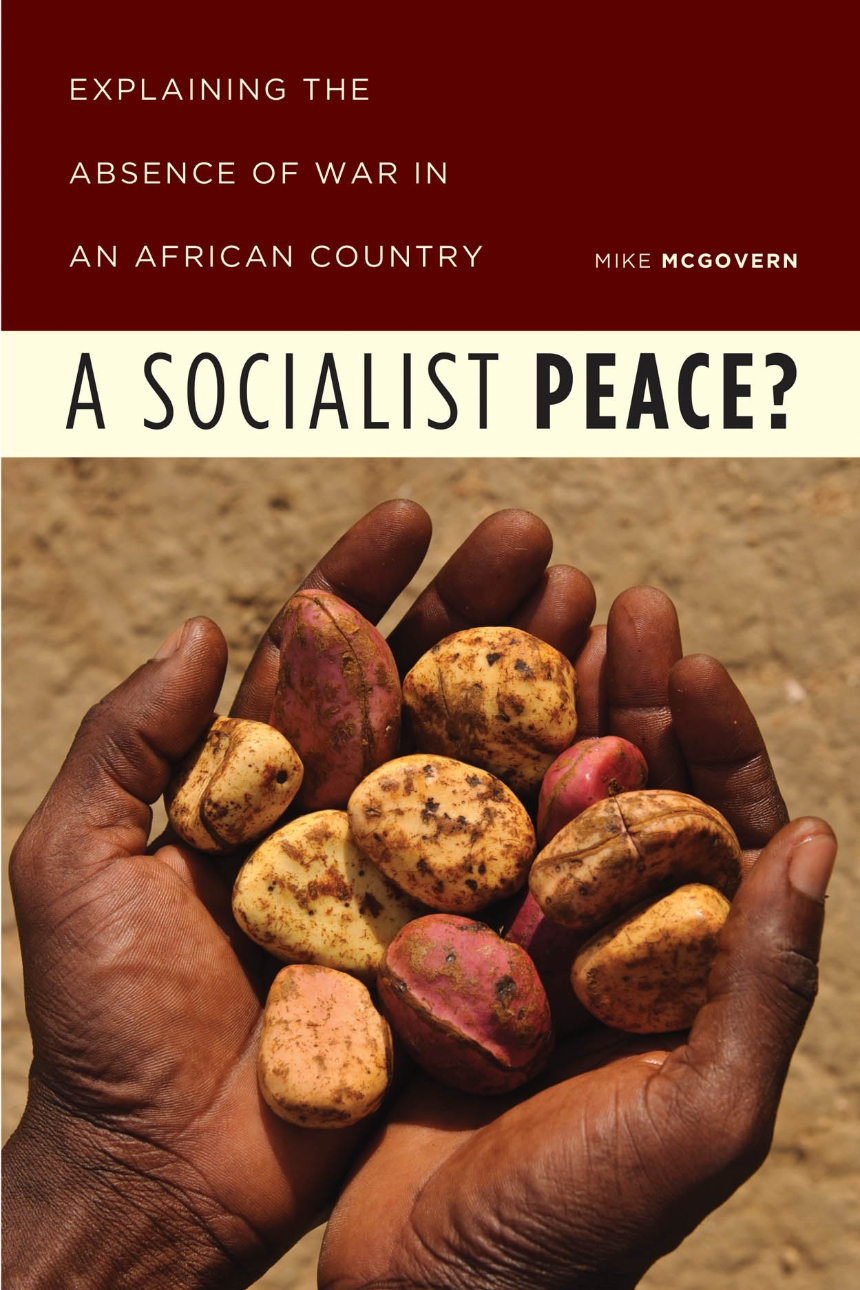A Socialist Peace?
Explaining the Absence of War in an African Country
9780226453606
9780226453576
9780226453743
A Socialist Peace?
Explaining the Absence of War in an African Country
For the last twenty years, the West African nation of Guinea has exhibited all of the conditions that have led to civil wars in other countries, and Guineans themselves regularly talk about the inevitability of war. Yet the country has narrowly avoided conflict again and again. In A Socialist Peace?, Mike McGovern asks how this is possible, how a nation could beat the odds and evade civil war.
Guinea is rich in resources, but its people are some of the poorest in the world. Its political situation is polarized by fiercely competitive ethnic groups. Weapons flow freely through its lands and across its borders. And, finally, it is still recovering from the oppressive regime of Sékou Touré. McGovern argues that while Touré’s reign was hardly peaceful, it was successful—often through highly coercive and violent measures—at establishing a set of durable national dispositions, which have kept the nation at peace. Exploring the ambivalences of contemporary Guineans toward the afterlife of Touré’s reign as well as their abiding sense of socialist solidarity, McGovern sketches the paradoxes that undergird political stability.
Guinea is rich in resources, but its people are some of the poorest in the world. Its political situation is polarized by fiercely competitive ethnic groups. Weapons flow freely through its lands and across its borders. And, finally, it is still recovering from the oppressive regime of Sékou Touré. McGovern argues that while Touré’s reign was hardly peaceful, it was successful—often through highly coercive and violent measures—at establishing a set of durable national dispositions, which have kept the nation at peace. Exploring the ambivalences of contemporary Guineans toward the afterlife of Touré’s reign as well as their abiding sense of socialist solidarity, McGovern sketches the paradoxes that undergird political stability.
240 pages | 13 halftones, 1 table | 6 x 9 | © 2017
Anthropology: Cultural and Social Anthropology
Political Science: Political and Social Theory
Reviews
Table of Contents
Acknowledgments
List of Figures and Table
Glossary
Timeline
List of Figures and Table
Glossary
Timeline
One / Explaining the Absence of War
A?
Socialist?
Peace?
Orientations toward the Future
Temporality and the Legacies of Socialism in Africa
Counterfactual Arguments and Anthropology’s Advantages
Choosing War
Chapters
Part I: ResentmentSocialist?
Peace?
Orientations toward the Future
Temporality and the Legacies of Socialism in Africa
Counterfactual Arguments and Anthropology’s Advantages
Choosing War
Chapters
Two / “Those Who Eat Monkey Will Never Rule over Us”
The Setting
The Interplay of Stereotypes
A Troubled Succession, 1984
Religion and Politics in West Africa, 1800–1958
The Ethnic Calculus, 1950–90
Disgust and Political Exclusion
From Autochthony to Culture
“It’s Our Turn”
Conclusion
The Interplay of Stereotypes
A Troubled Succession, 1984
Religion and Politics in West Africa, 1800–1958
The Ethnic Calculus, 1950–90
Disgust and Political Exclusion
From Autochthony to Culture
“It’s Our Turn”
Conclusion
Interlude: Palm Wine and Ethnic Cleansing
Three / Articulating Betrayal
Case Study: N’Zérékoré, 1991
Secrecy, Trust, and Betrayal
Narratives of Betrayal
From Words to Acts
Conclusion
Part II: War Averted?Secrecy, Trust, and Betrayal
Narratives of Betrayal
From Words to Acts
Conclusion
Four / An Exceptional Case: The Killings in Nuvanuita
Case Study: “Nuvanuita,” October 2000
Socialist State Practices and Their Legacies
Macenta as Microcosm
Conclusion
Socialist State Practices and Their Legacies
Macenta as Microcosm
Conclusion
Part III: Afterlives
Interlude: “I’m not putting my life on the line . . .”
Five / The Rhetoric of Counterinsurgency
Case Study: The Antirefugee Attacks of September 2000
Postsocialist Publics and Counterpublics
The Touré Legacy: Semantic, Rhetorical, and Organizational
Postsocialist Publics and Counterpublics
The Touré Legacy: Semantic, Rhetorical, and Organizational
Six / The Symbolic Death of Sékou Touré
The General Strikes of 2006–7
The Death of the Father: The Afterlife of a Socialist Regime
The Rise, Fall, and Rebirth of Trade Unionism in Guinea
The Two Bodies of the King and the Timing of the Strikes
Conclusion
Interlude: Ga li?The Death of the Father: The Afterlife of a Socialist Regime
The Rise, Fall, and Rebirth of Trade Unionism in Guinea
The Two Bodies of the King and the Timing of the Strikes
Conclusion
Seven / The Cinquantenaire and the Dadis Show
The Annual Ceremony, 2008
Following the Money
“La Vérité Finira Toujours par Triompher un Jour”
A Musical Interlude
The Dadis Show
The September Massacres and the Resurgence of Disgust
Conclusion
Following the Money
“La Vérité Finira Toujours par Triompher un Jour”
A Musical Interlude
The Dadis Show
The September Massacres and the Resurgence of Disgust
Conclusion
Eight / Conclusion
The Current State of Play
On Sacrifice and Suffering
On Sacrifice and Suffering
Works Cited
Index
Index
